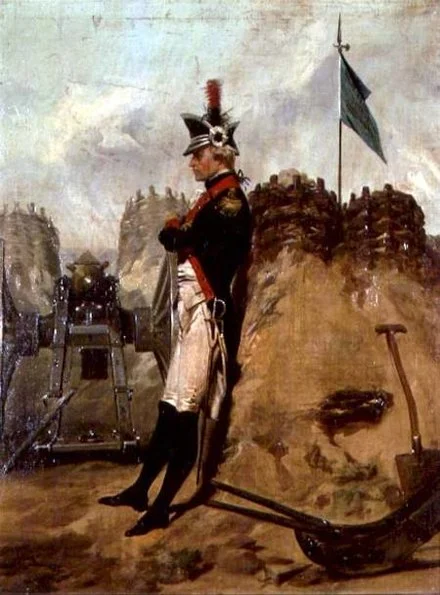Federalist #11 - Alexander Hamilton - Federalist Fridays
In Federalist #11 Alexander Hamilton discusses how the Constitution could provide the United States with better international trade option.
Hamilton goes on to discuss how a unified Navy would be beneficial to the Union.
Federalist #11
Alexander Hamilton
November 23, 1787
The Utility of the Union in Respect to Commercial Relations and a Navy
Two days after #10, Alexander Hamilton publishes Federalist Paper #11.
Federalist #11 concerns the economic benefits of the Constitution, specifically when it comes to international trade.
Additionally, this Paper discusses how those economic benefits would naturally lead to a more robust Navy. This Navy, the essay argues, would be paramount to a stronger economy.
International Trade
In Federalist #11, Hamilton warns that European nations, each with their own colonies in the New World, are fearful of the United States controlling trade in the Western Hemisphere. It would be in their interest to undermine the nation by pitting the separate States against each other.
Europe would divide the United States by having us bit against each other for treaties. As Alexander says:
“This would answer the threefold purpose of preventing our interference in their navigation, of monopolizing the profits of our trade, and of clipping the wings by which we might soar to a dangerous greatness.”
However, by uniting behind the Constitution, the United States could turn the tables, and instead have the nations of Europe compete for its trade.
A Navy
Hamilton goes on to point out that the Constitution will allow the United States to create one, unified Navy.
There are several advantages to having a single Navy, the first of which is to protect American ships.
Additionally, though the nation might not have the most powerful Navy in the world, Hamilton believed a substantial enough one could be constructed which, “would at least be of respectable weight if thrown into the scale of either of two contending parties.” In other words, whoever’s side the United States took in a war, would have a distinct advantage in coming out the winner.
This, in essence, would allow the United States to become an important power on the world stage almost immediately. Being in such a position would give the nation the opportunity to grow into an economic powerhouse.
Unity
Hamilton goes on to discuss how the Navy would bring the States together. Resources of the Southern and Middle States would be combined to build the ships, while the premier sailors of the North would be called on as captains.
Furthermore, the economic health of the nation would be guaranteed:
“When the staple of one fails from a bad harvest or unproductive crop, it can call to its aid the staple of another. The variety, not less than the value, of products for exportation contributes to the activity of foreign commerce.”
Therefore, one bad year might sink a State’s economy into a depression, but a National Government could be kept stable in such a situation.
The Anti-Federalist Argument
There are several arguments which might be forwarded from the Anti-Federalist perspective to Federalist #11.
First of which might be that they agree. Most Americans knew at the time that the Articles of Confederation had fallen short of its goal and needed adjustments. Many Anti-Federalists could come around to the idea of a unified Navy. The question would be, why do the States need to come under one National Government to make that happen?
Additionally, one might point to the idea that Europe would attempt to pit the States against each other and say ‘so what? A market that makes the States compete can only lead to better prices.’
These same Anti-Federalists could bring up Federalist #10 from two days before and note the tyranny of the majority which might happen under the Constitution. The United States could make decisions that are in the entire county’s best interest, but that same decision could adversely affect individual States. For example, if too much tobacco is being produced and the price is plummeting, what’s to stop the National Government from prohibiting one state from growing that product at all?
If you have missed any of the first ten Federalist Friday Reviews, make sure you go to our list here.
To learn about the United States’ brief experience with a Navy during the American Revolution, pick up ‘George Washington’s Secret Navy’ from the affiliate link below.
Don’t forget to subscribe to our email list for a new article every day.






